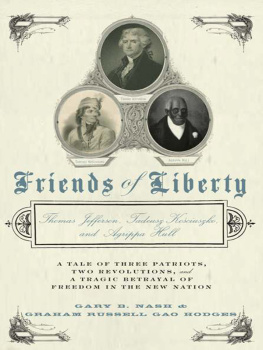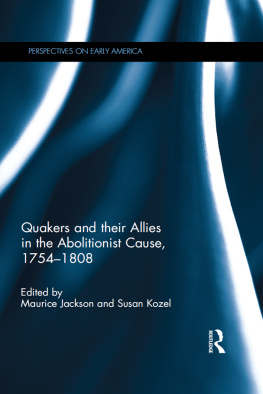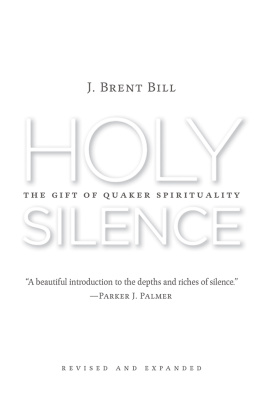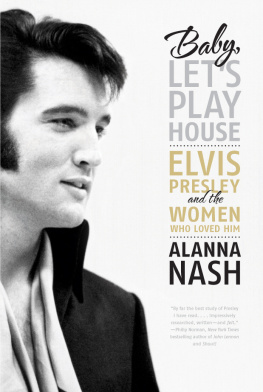Warner Mifflin
EARLY AMERICAN STUDIES
Series editors:
Daniel K. Richter, Kathleen M. Brown,
Max Cavitch, and David Waldstreicher
Exploring neglected aspects of our colonial,
revolutionary, and early national history and culture,
Early American Studies reinterprets familiar themes and
events in fresh ways. Interdisciplinary in character, and
with a special emphasis on the period from about 1600
to 1850, the series is published in partnership with the
McNeil Center for Early American Studies.
A complete list of books in the series
is available from the publisher.
Warner Mifflin

Unflinching Quaker Abolitionist
Gary B. Nash

Copyright 2017 University of Pennsylvania Press
All rights reserved. Except for brief quotations used for purposes of
review or scholarly citation, none of this book may be reproduced in any
form by any means without written permission from the publisher.
Published by
University of Pennsylvania Press
Philadelphia, Pennsylvania 19104-4112
www.upenn.edu/pennpress
Printed in the United States of America on acid-free paper
1 3 5 7 9 10 8 6 4 2
Library of Congress Cataloging-in-Publication Data
Names: Nash, Gary B., author.
Title: Warner Mifflin : unflinching Quaker abolitionist / Gary B. Nash.
Other titles: Early American studies.
Description: 1st edition. | Philadelphia : University of Pennsylvania Press, [2017] |
Series: Early American studies | Includes bibliographical references and index.
Identifiers: LCCN 2017016851 | ISBN 978-0-8122-4949-1 (hardcover)
Subjects: LCSH: Mifflin, Warner, 17451798. | QuakersDelawareCamdenBiography.
Classification: LCC BX7795.M48 N37 2017 | DDC 289.6092 [B] dc23
LC record available at https://lccn.loc.gov/2017016851
Nothing which ought to be done, should be deemed impracticable; a few noble spirits may excite a whole nation to action... and finally triumph over evils the most enormous and appalling which have ever afflicted mankind.
R. R. Gurley, Introduction to Abolition of the African Slave-trade by the British Parliament Abridged from Clarkson [History of the Abolition of the Slave-trade] with a Brief View of the Present State of the Slave-trade and Slavery (Augusta, Maine: P. A. Brinsmade, 1830), v.
The one thing that doesnt abide by majority rule is a persons conscience.
Atticus Finch in Harper Lee, To Kill a Mockingbird (1960)
Contents


ALC | American Loyalist Claims, Public Record Office, UK, Ancestry.com |
C- P- W | Coxe- Parrish- Wharton Papers, HSP |
DCMB | Duck Creek Manumission Book, HSP transcribed version |
DCMMM | Duck Creek Monthly Meeting Minutes, HSP transcribed version |
DCWMMM | Duck Creek Womens Monthly Meeting Minutes |
DHFFC | Documentary History of the First Federal Congress, Linda Grant DePauw et al., eds., 21 vols. (Baltimore: Johns Hopkins University Press, 19742017) |
DHS | Delaware Historical Society, Wilmington |
DPA | Delaware Public Archives, Dover |
Drinker Diary | Elaine Forman, ed., The Diary of Elizabeth Drinker, 3 vols. (Boston: Northeastern University Press, 1991) |
FHLSC | Friends Historical Library, Swarthmore College, Swarthmore, Pennsylvania |
FMCSC | Franklin and Marshall College Archives and Special Collections, Lancaster, Pennsylvania |
HSP | Historical Society of Pennsylvania, Philadelphia |
KCDLR | Kent County Delaware Land Records, 12 vols.; various compilers (Millsboro, Delaware: Colonial Roots) |
LC | Library of Congress, Washington, D.C. |
LCMMM | Little Creek Monthly Meeting Minutes |
LCP | Library Company of Philadelphia |
PAS | Papers of the Pennsylvania Abolition Society, Microfilm edition, HSP |
PMHB | Pennsylvania Magazine of History and Biography |
PMMMM | Philadelphia Mens Monthly Meeting Minutes |
PPAS | Papers of the Pennsylvania Abolition Society, HSP |
PQMM | Philadelphia Quarterly Meeting Minutes |
PWMMM | Philadelphia Womens Monthly Meeting Minutes |
PYMIC | Philadelphia Yearly Meeting Indian Committee Records, QCHC |
PYMM | Philadelphia Yearly Meeting Minutes |
PYM-MME | Philadelphia Yearly Meeting Minutes of Ministers and Elders |
PYM-MS | Philadelphia Yearly Meeting Minutes for Sufferings |
QCHC | Quaker Collection, Haverford College, Haverford, Pennsylvania |
RIHS | Rhode Island Historical Society, Providence |
SQMM | Southern Quarterly Meeting Minutes |
WCLUM | William Clements Library, University of Michigan, Ann Arbor |
WMQ | William and Mary Quarterly 3rd Series |
WQMM | Western Quarterly Meeting Minutes |

At a time when questions about race, equality, and social justice flood the media, it is fitting to bring out of the shadows one of the most unflinching friends of black Americans who strode through the boisterous Revolutionary era. In a notice of his death, at the end of the eighteenth century, the new nations foremost newspaper wrote that The number, difficulties, and success of his labours in the cause of the enslaved Africans in the United States would furnish materials for a volume. But such a volume has never been written, more than two centuries after the death of a man named Warner Mifflin. Today, his name is known to hardly anyone.
That was not true in the time of Franklin, Washington, Hamilton, Adams, Jefferson, and Madison. All these celebrated founders knew Warner Mifflin well, and some of them did not like what they saw in the man. Some of the luminaries of the European Enlightenmentespecially St. John de Crvecoeur, Jacques-Pierre Brissot de Warville, and Thomas Clarksoncommuned with Mifflin, and they very much liked what he said, what he did, and what he stood for. There was no such thing as a mid-Atlantic Quaker who couldnt recognize the man, not just for his unusual height, little short of seven feet, but for his moral intensity that was exceeded only by his haunting fear that he would displease his God with inadequate efforts on behalf of black Americans. He was, in fact, the key bridge figure in the early abolitionist movement, connecting the first wave of antislavery spokesmen in the decades leading up to the American Revolution with another wave of emancipationists awakened in the third decade of the nineteenth century. Operating between these two cohorts was a small but determined band of abolitionists whom historians only recently have begun to disinter from historys graveyard. Among them, Mifflin was the most energetic, the most uncompromising, and the most reviled.
Next page












